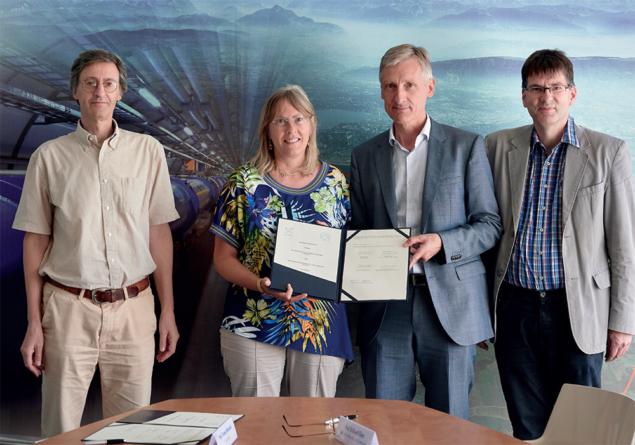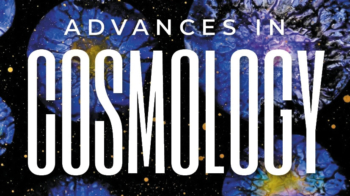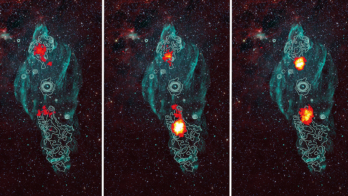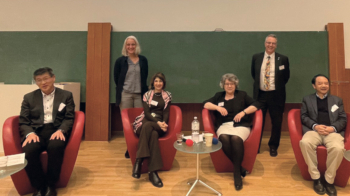
On 10 July, CERN and the Astroparticle Physics European Consortium (APPEC) founded a new research centre for astroparticle physics theory called EuCAPT. Led by an international steering committee comprising 12 theorists from institutes in France, Portugal, Spain, Sweden, Germany, the Netherlands, Italy, Switzerland and the UK, and from CERN, EuCAPT aims to coordinate and promote theoretical physics in the fields of astroparticle physics and cosmology in Europe.
Astroparticle physics is undergoing a phase of profound transformation, explains inaugural EuCAPT director Gianfranco Bertone, who is spokesperson of the Centre for Gravitation and Astroparticle Physics at the University of Amsterdam. “We have recently obtained extraordinary results such as the discovery of high-energy cosmic neutrinos with IceCube, the direct detection of gravitational waves with LIGO and Virgo, and we have witnessed the birth of multi-messenger astrophysics. Yet we have formidable challenges ahead of us: understanding the nature of dark matter and dark energy, elucidating the origin of cosmic rays, understanding the matter-antimatter asymmetry problem, and so on. These are highly interdisciplinary problems that have ramifications in cosmology, particle, and astroparticle physics, and that are best addressed by a strong and diverse community of scientists.”
The construction of experimental astroparticle facilities is coordinated by APPEC, but until now there was no Europe-wide coordination of theoretical activities, says Bertone. “We want to be open and inclusive, and we hope that all interested scientists will feel welcome to join this new initiative.” On a practical level, EuCAPT aims to coordinate scientific and training activities, help researchers attract adequate resources for their projects, and promote a stimulating and open environment in which young scientists can thrive. CERN will act as the central hub of the consortium for the first five years.
It is not a coincidence that CERN has been chosen as the central hub of EuCAPT, says Gian Giudice, head of CERN’s theory department. “The research that we are doing at CERN-TH is an exploration of the possible links between physics at the smallest and largest scales. Creating a collaborative network among European research centres in astroparticle physics and cosmology will boost activities in these fields and foster dialogue with particle physics,” he says. “Dark matter, dark energy, inflation and the origin of large-scale structures are big questions regarding the universe. But there are good hints that suggest that their explanation has to be looked for in the domain of particle physics.”





